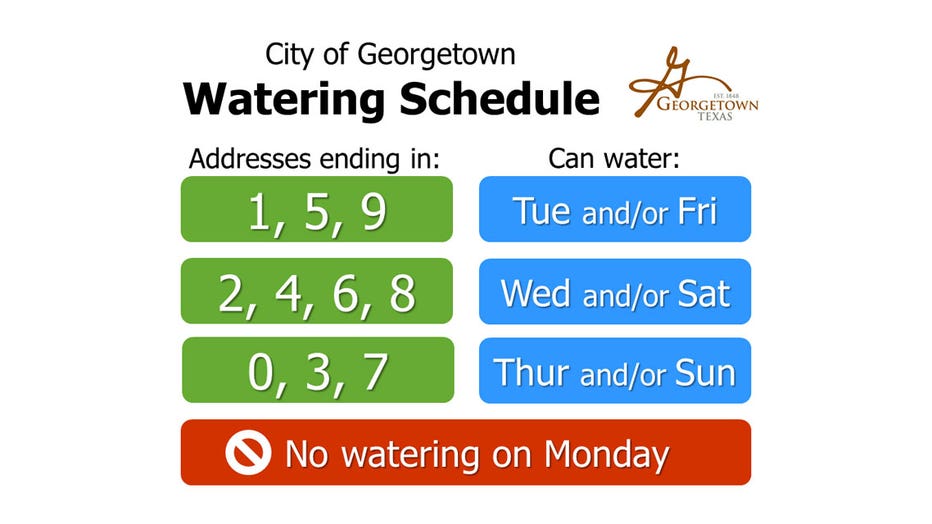Georgetown cracking down on homes, businesses violating watering schedule
Georgetown cracking down on homes, businesses violating watering schedule
The city says that with its increasing population, they have to take steps to make sure its water treatment plant isn't overrun during the heat of summer.
GEORGETOWN, Texas - The city of Georgetown is cracking down on residents watering when they aren't supposed to.
Nearly 200 places, both residential and commercial, are in violation and the city says they are taking enforcement seriously this year.
RELATED: City of Georgetown asking residents to reduce watering to avoid one-day-per-week limit
"We are certainly in a drought and what that means is it can impact our water supply so as we have less and less rain and that reduces water in the lake that we draw from our two sources are Lake Georgetown and Lake Stillhouse Hollow in Bell County," says Keith Hutchinson, the city's communications manager.
Right now Georgetown is cracking down on those homes and businesses violating the watering schedule, which is two days a week for homes and businesses.

"We are doing some enforcement and trying to make sure people are watering on the right day," Hutchinson said. "Our issue is we are exceeding 90% of our water treatment plant capacity even though we are in the process of expanding our main water treatment plant out of Lake Georgetown on our highest capacity days we are pushing the limits."
Georgetown isn't the only city trying to conserve water. Most Central Texas cities like Austin, Cedar Park, and Round Rock have water restrictions in place.
---------
Get breaking news alerts in the FOX 7 Austin News app. It is FREE!
---------
Hutchinson says for Georgetown, the combination of the city's growing population, the current drought and summer being a high usage time for water, their system is straining.
"Our message is to really encourage all of our customers to water on the right day we have a watering schedule to spread the demand across 6 days," Hutchinson said.
SIGN UP FOR FOX 7 AUSTIN EMAIL ALERTS
A first-time violation is a warning; a second violation will result in a $60 fine added to the resident's water bill.
Georgetown is currently working to expand its water treatment plant to help handle its increasing population, with work expected to be finished next year.


